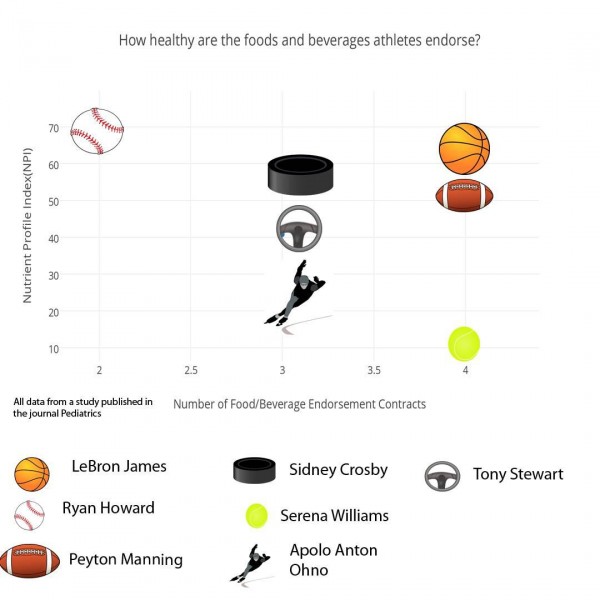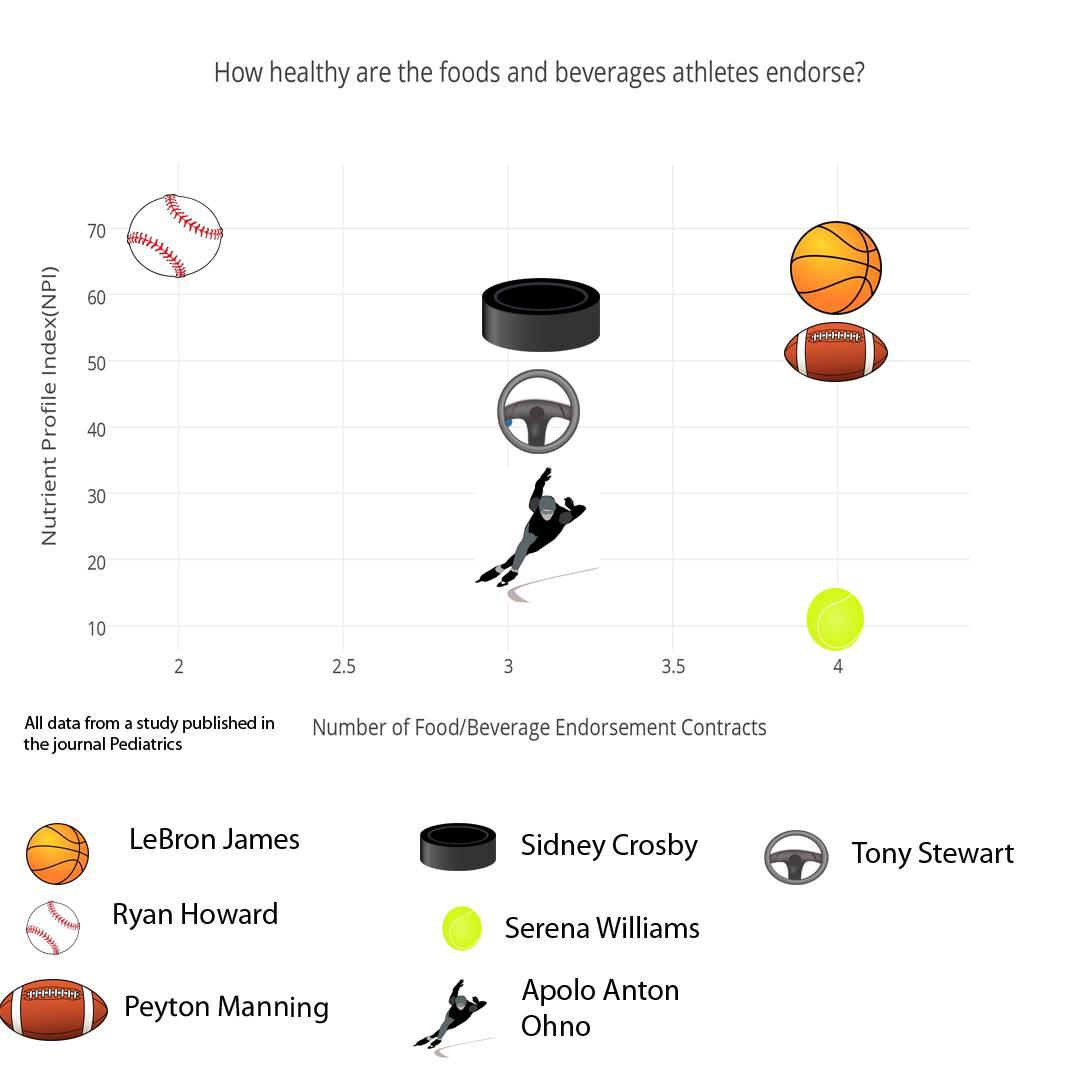SUPERBOWL WEEK: Athlete endorsements influence adolescents

By Eric Walker,
Bluedevilhub.com Staff–
You’re watching the Denver Broncos game, and after Peyton Manning’s touchdown pass, the TV goes to advertisements. Manning’s face reappears on the screen—for a Papa John’s commercial, in which he tells you to buy from the pizza fast food chain.
Ironically, even though athletes are generally extremely fit and eat healthily, they are often used in advertisements to tell the public to eat what athletes are endorsing, even though the endorsed products are usually nutrient-poor, according to the Journal of Pediatrics.
Research published in The Journal showed that 79 percent of the 62 food products that appeared in advertisements endorsed by athletes were energy dense and nutrient-poor. Of the 46 beverages that were in athlete-endorsed ads, 93 percent received all their calories from added sugars. Using the nutrient levels, the study created a Nutrient Profile Index (NPI) scores making it easier to understand.
Senior Roy Cheng is not affected by these types of ads.
“I won’t go buy a product because of athletes in its advertisements,” Cheng said.
According to Marie Bragg, author of “Athlete Endorsements in Food Marketing” and a professor at New York University, companies mostly target adolescents with advertisements for unhealthy foods and beverages because they will become the next generation of adult consumers, and they spend a lot of money on consumer goods.
However, the products athletes are now endorsing are better than in the past. “Athletes used to even endorse tobacco products,” Bragg said.
Consumers want authenticity from athletes in their endorsements, and this is causing athletes to take ownership of the products they endorse, according to Jessica Braunstein-Minkove, co-author of a study called “Dimensions of Athletic Star Power Associated with Generation Y Sports Consumption.”
“What we are seeing today is greater buy-in when there is […] an authentic connection as well as something that is based on a purpose-driven campaign,” Braunstein-Minkove said.
Athletes receive millions of dollars for endorsing products, so they are unlikely to turn down these offers even if the product has health issues. The only reason they would turn down offers, according to Bragg, is if public opinion is against the product or legal policies come into effect.
According to Steve Dix, the author of a paper called “Sport Celebrity Influence on Young Adult Consumers,” athletes influence consumers due to a large number of factors including consumers’ tendency to like and admire celebrities, the relevance of the athlete to the product category and physical attractiveness of the athlete.
Research by Dix found that athletes could get young adults to switch products depending on what product the athlete endorses. Also, young adults’ complaints regarding products changed depending on products the athlete talked in a positive manner about and which products he or she complained about.


